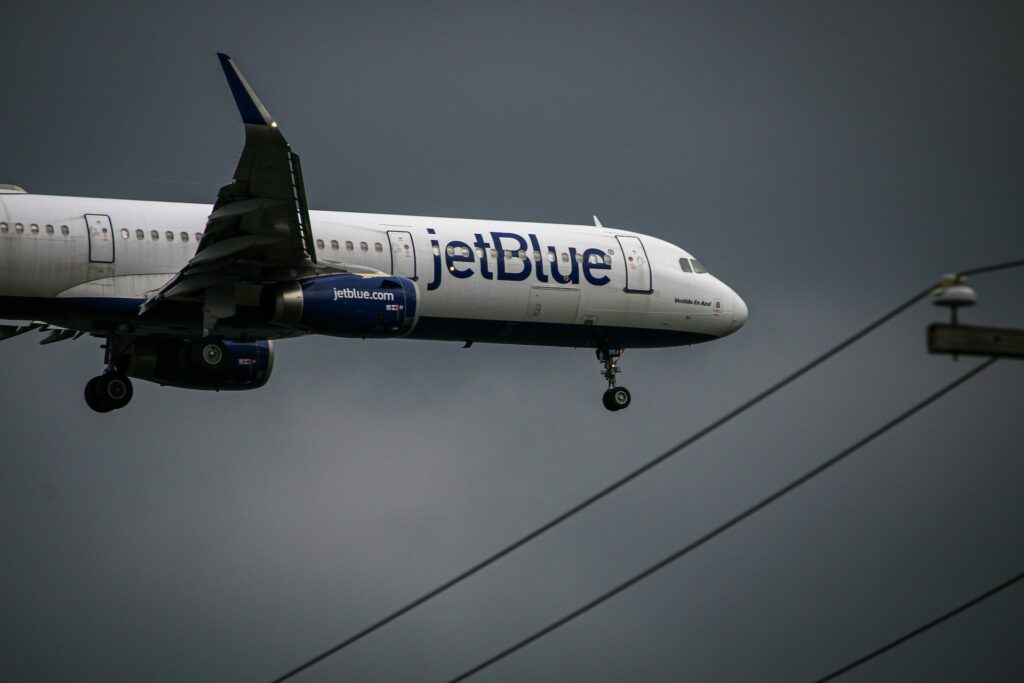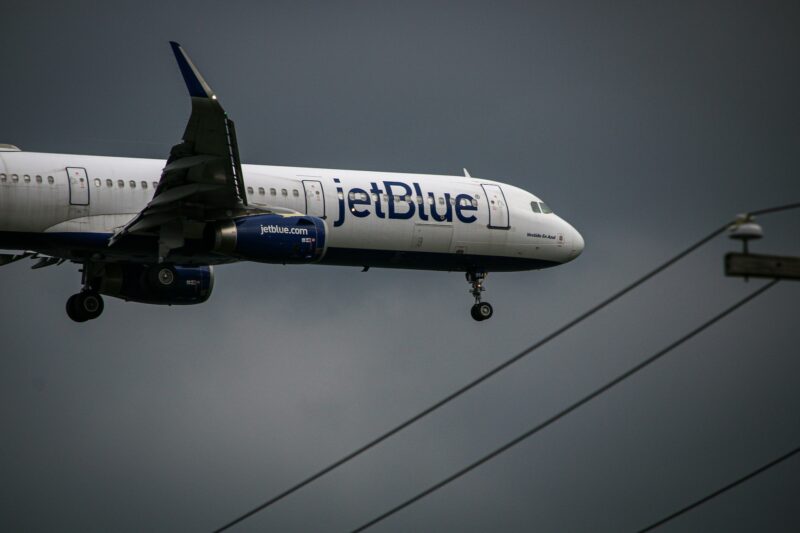JetBlue Airways is currently embroiled in a legal battle with the Justice Department over its proposed acquisition of Spirit Airlines. The airline argues that the acquisition is essential for its growth and to compete effectively with larger carriers in the industry.

This legal challenge comes at a time when JetBlue has reported an adjusted loss for the year, reflecting the financial struggles the New York-based carrier is facing. The Justice Department is concerned that the proposed acquisition, valued at $3.8 billion, could lead to increased fares and reduced choice for consumers, particularly affecting cost-conscious fliers.
Continued growth?
The deal, if approved, would position JetBlue as the fifth-largest airline in the U.S., creating a more formidable competitor to larger airlines such as American, Delta, United, and Southwest. These larger carriers currently control about three-quarters of the U.S. market, and JetBlue believes the acquisition of Spirit is a crucial step to challenge this dominance.
Financially, both JetBlue and Spirit are facing the brunt of rising fuel prices and other operational costs, which have been exacerbated by a slowdown in travel demand post-pandemic and declining fares. This financial strain is evident in JetBlue’s recent third-quarter results, which reported a loss per share of 39 cents on revenue of $2.35 billion, missing analysts’ expectations.
Upgrading Spirit Airlines
JetBlue’s proposed strategy to mitigate operational costs includes removing seats from Spirit’s planes and upgrading them to match JetBlue’s interior, which offers more amenities compared to Spirit’s no-frills model. This operational shift is aimed at attracting a different segment of travelers and improving revenue per passenger.
The antitrust trial, set to last about three weeks in the U.S. District Court in Boston, is a significant challenge for JetBlue and could potentially derail its plans for expansion and competitiveness in the market. It also highlights the broader regulatory environment under the current administration, which has shown a keen interest in scrutinizing mergers and acquisitions to prevent market monopolization and protect consumer interests.
Route are being cut
Moreover, JetBlue’s financial difficulties are further highlighted by its recent decision to phase out more than a dozen routes across its network, particularly affecting its New York hub. This move, coming just before its earnings call, signals the airline’s attempt to streamline operations in response to the current financial headwinds.
As JetBlue navigates through these legal and financial challenges, its ability to successfully acquire Spirit and improve its financial performance will be closely watched by industry stakeholders and could potentially set a precedent for future airline mergers and acquisitions in the tightly regulated aviation industry.
At a tipping point?
On a flight in October, as passengers were deplaning a JetBlue flight, an unexpected shift in weight caused the aircraft to tilt backward, its nose lifting into the air. The sudden movement generated panic among those on board, who were in the process of retrieving their belongings from the overhead compartments.
In the aftermath, JetBlue promptly took the aircraft out of service for thorough inspection and investigation. The airline reiterated its commitment to safety, assuring the public that such incidents were rare and that measures were in place to prevent similar occurrences in the future.
Meanwhile, the Federal Aviation Administration (FAA) was also alerted, and an official review was likely to follow. The story of Flight 662 served as a stark reminder of the unexpected challenges that can arise in air travel, even when safely on the ground – not to mention in the midst of legal challenges.
Are airline stocks a buy?
In 2023, the airline industry is rebounding from the Covid-19 pandemic, with air travel demand nearing pre-pandemic levels, boosting airline stocks significantly. Collectively, 19 airline stocks have seen about a 50% increase, with notable gains in stocks like United Airlines, Delta, and American Airlines.
However, the sector remains risky due to unforeseen challenges like adverse weather conditions and technical disruptions, as witnessed in late 2022 and early 2023, which had temporarily hampered operations. Investing in airline stocks requires considering these volatilities, with diversification through instruments like the U.S. Global Jets ETF suggested as a cautious approach.
WeInvests is a financial portal-based research agency. We do our utmost best to offer reliable and unbiased information about crypto, finance, trading and stocks. However, we do not offer financial advice and users should always carry out their own research.
Read More













